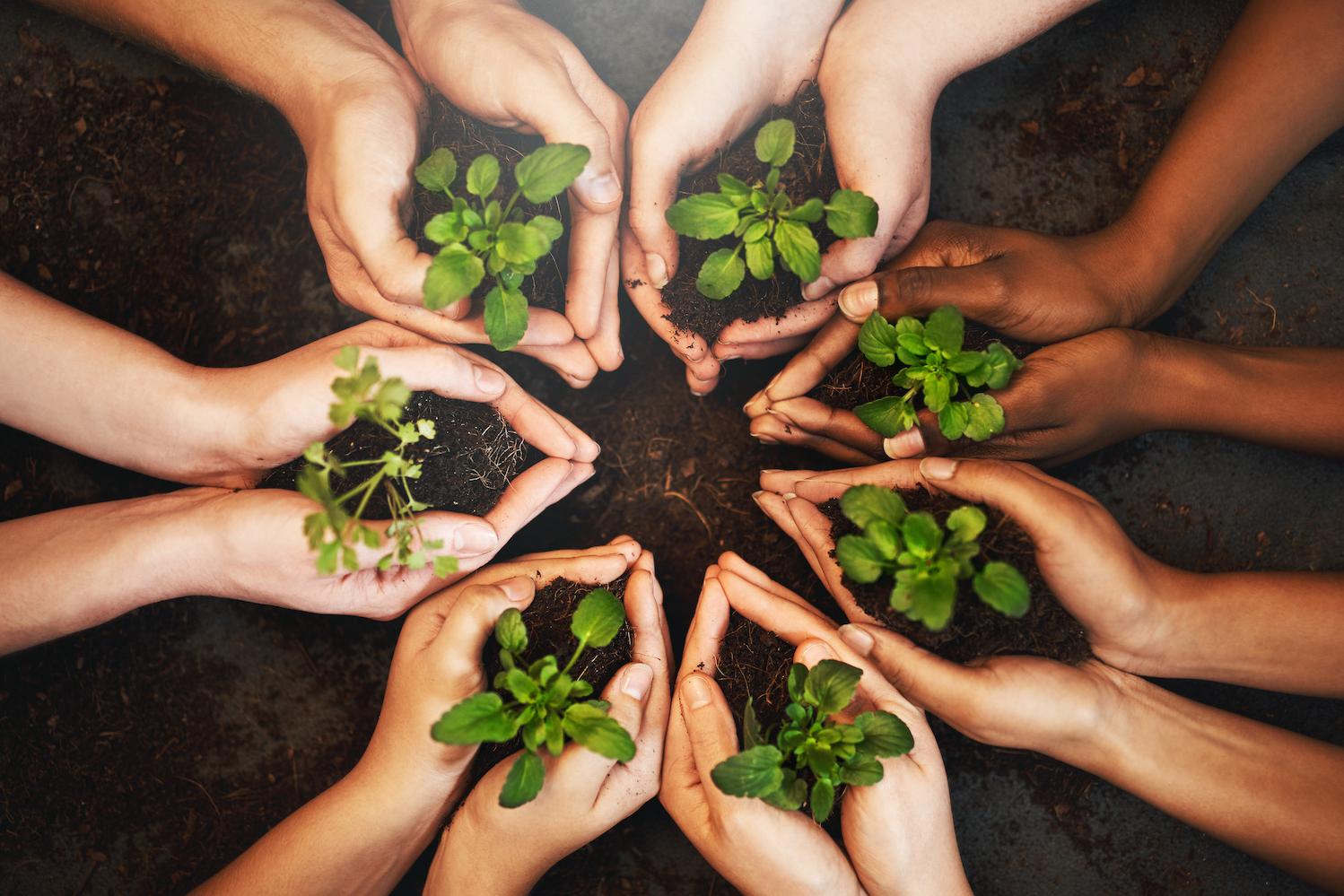Indonesia is facing a great threat of marine littering, due to the rapid increase of single-use packaging and ineffective waste management systems that had remained unchecked over the years. According to data from the Ministry of Environment, Indonesia, which has the world’s largest island nation, generates around 42 million tons of municipal waste and 7.8 million tons of plastic waste. About 4.9 million tons of waste are continually mismanaged; going uncollected, disposed of improperly, or leaked from formal landfills.
Better management of plastic litter on land to reduce the amount of plastic litter entering the oceans has been considered as one of the solutions to address the issue of what to do with the overwhelming amounts of plastic waste. The government of Indonesia has issued a number of regulations to deal with the marine litter problem. This includes the release of Presidential Regulation no. 81/2018 on the Handling of Marine Debris and the National Plan of Action of Marine Debris, which aims to reduce 70 percent of marine plastic litter by 2025.
However, many reports have been consistently showing that marine debris problems in Indonesia are unlikely to be solved in the near time. One way to deal with the challenge has been echoed repeatedly by the regulators, as well as the nation’s related stakeholders is to push a transition to a circular economy, in which consumers and producers are given incentives to reuse products, rather than scrapping them that leads to extracting new resources. However, implementing the concept is challenging in developing countries like Indonesia, especially due to high investment in innovations as well as improving regulatory aspects.
Public funds needed as the catalyst?
"Circular economy has natural characteristics that are challenging to finance mainly because it is a new sector and requires a high amount of investment for innovation as well as systems and technological change,” said Adelia Surya Pratiwi, Economist at the Fiscal Policy Agency, Ministry of Finance Indonesia, who expressed her views personally to JakartaDaily.id. "Although it has huge potential as it is an important vehicle to achieve Sustainable Development Goals (SDGs) as well as a green economy which is already both international and national commitments, it remains a challenge for emerging economies like Indonesia.
According to Ms. Pratiwi, as it is part of the nation’s commitment, “it would be normal to assume” that the catalytic financing for SDGs and the green economy, in general, would come from the Government. However, emerging economies, she said, normally have a problem with this as they have limited public funds, especially in relevance to today’s context.
"Currently, economic challenges are not conventional, it requires flexibility and a large fiscal space to anticipate future shocks. There are a few shocks that the fiscal authorities currently anticipate, namely the pandemic which has caused the cost of restoring public health to increase, geopolitics and inflation which has led to an increasing need for subsidies and social protection to maintain people’s purchasing power, and so on,” she said.
"At the same time, domestic resources such as tax revenues are not yet at an optimal level. Besides, it is agreed at the international forums that transition in emerging economies needs to be done just and affordably. For these reasons, interventions that are highly measurable in terms of risks and costs are needed if the circular economy is to utilize public funds as the catalyst," she said.
Clock Ticking
Norimasa Shimomura, UNDP Indonesia Resident Representative, made a specific comment on Circular Economy implementation in Indonesia in a joint report initiated by The Ministry of National Development Planning/National Development Planning Agency and the Embassy of Denmark in Jakarta. "Indonesia currently stands at a critical juncture, where more resources and energy may be needed, to reinvigorate its post-COVID-19 economy. As the clock ticks towards 2030, a key question remains as to how a resource-rich country like Indonesia strives to improve people’s lives, whilst at the same time reducing its carbon emissions and waste," he said.
"Balancing energy use and resource utilization to sustain growth is indeed a tricky question that could lead to setbacks, if not handled strategically. Under the circular economy, companies and manufacturers can be successful by producing zero waste and re-using any by-products from their production," Shimomura said. He continued that consumers nowadays would value such products and services that offer circular economy concepts. "Hence, with its massive potential in cost efficiency, a circular economy is a win-win model for all stakeholders in Indonesia to boost growth, address climate change and create new jobs at the same time," he said.
There are a number of initiatives and projects that can showcase that implementation of a circular economy in Indonesia have economic, environmental, and social impacts. Answering the benefit of the doubt. A book titled "The Future is Circular: Concrete Moves for Circular Economic Initiatives in Indonesia" presents some tangible benefits of implementing circular economy from 36 initiatives in five priority sectors: food and beverages, textiles, wholesale and retail trade (with a focus on plastic packaging), construction, and electronics.
The initiatives were implemented by the governments, the private sector to non-government organizations. Jointly written by Bappenas, an NGO, and, the Embassy of Denmark in Jakarta, the book claims implementation of a circular economy from the 36 initiatives could offer economic, social, and environmental benefits. These include cutting costs by more than Rp431.91 billion, creating new jobs for around 14.270 laborers, helping reduce greenhouse emissions by more than 1.4 million CO2E, helping save more than 4.8 million MWh of power capacity, and helping reduce more than 252,000 cubic meters of water consumption.
There is also a "Rethinking Plastic" initiative, which is a pilot project under the auspices of the German Agency for International Cooperation, often shortened to simply GIZ. The German development agency that provides services in the field of international development cooperation has initiated "The Rethinking Plastics" project through close cooperation with international, national, and local partners, as well as the EU Delegation in Indonesia.
The project provides policy advisory support and fosters knowledge and experience exchange by facilitating a variety of activities, including public and private policy dialogues and capacity building, pilot activity, and other related awareness-raising activities. The Rethinking Plastics project supports six pilot projects, which are done to examine or establish a readiness for mandatory extended producer responsibility (EPR) for packaging in alignment with the Road Map Waste Reduction by Producer enacted by KLHK in 2019; advancing reduction of single-use plastic consumption to reduce potential waste generation through education and awareness raising, and introducing Fishing for Litter initiative as well as Clean Fishing Port, to address marine litter from fisheries sector.
Rocky P., the Advisor for Plastic Waste Management & Marine Litter Prevention at GIZ explained JakartaDaily.id explained how Rethinking Plastics could showcase the benefit of implementing a circular economy in Indonesia. "Raising the awareness of the producers to be more responsible on the waste of the packaging in the post-consumption in Indonesia is crucial," he said. "Innovation for packaging should also consider whether the packaging is easy to be collected, can be naturally decomposed or feasible to be recycled; and participated in the collection as well as raising the awareness of consumers in treating their packaging waste."
In order to encourage the responsibility of the producer in doing so, an extended producer responsibility scheme is introduced. "EPR instrument has been regarded by EU under its Packaging and Packaging Waste Directive that by end of 2024, EU countries should ensure that producer responsibility schemes are established for all packaging," he explained. "Producer responsibility schemes provide for the financing or financing and organization of the return and/or collection of used packaging and/or packaging waste and its channeling to the most appropriate waste management option, as well as for reuse or recycling of the collected packaging and packaging waste."
Mirroring the experience of the EU, the project Rethinking Plastics prioritizes among others, the initiative to promote an extended producer responsibility scheme in Indonesia. "The project supports the Ministry of Environment and Forestry of Indonesia, to advance and promote the implementation of Minister regulation no 75/2019 on Waste Reduction by Producers," he said. Rocky the presence of the Rethinking Plastic is expected to help the Indonesian government's road map for waste reduction by producers so that Indonesia can move towards full implementation of EPR for packaging scheme; where packaging by 2030 should be either can be naturally decomposed, fully recyclable and/or reusable. "Producer is also required to participate in taking back their packaging together with waste collection actors. The project through the pilot also provides capacity building of TPS3R and Waste Bank in Kota Semarang and Kabupaten Malang to strengthen the readiness of the waste collection actor in collaborating to implement the Road Map," he said.




 Gunawan Lie
Gunawan Lie
 Oct 30, 2022
Oct 30, 2022



